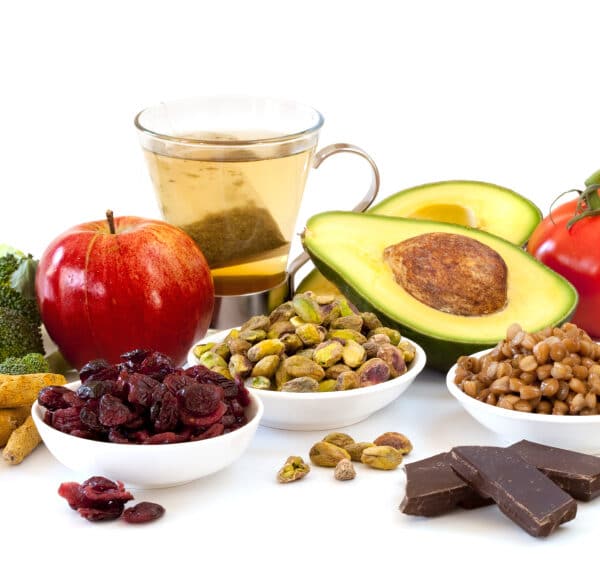
Evidence from clinical research is still inconclusive
Polyphenols (sometimes referred to as phytochemicals or phytonutrients) are a group of plant compounds commonly found in fruit, vegetables, grains, coffee and cocoa beans. Evidence from clinical research to support a link between polyphenols and health is still inconclusive, with many studies using high doses of extracted polyphenols (usually found in supplements). However, studies that look for associations between different types of diets and health outcomes in large groups of people (epidemiological studies) continue to suggest that diets rich in polyphenols may be associated with health benefits. Some scientists have proposed that this is because the whole food needs to be consumed as opposed to just the extract, as polyphenols may be more stable in their natural form and can work together to provide a greater effect.
Supporting this theory, a study published this month, found that other nutrients within a whole food (including carbohydrate, fibre, protein, fat, vitamins and minerals) can affect digestion of polyphenols and the amount the body absorbs. Eating a varied diet, rather than just taking a supplement, will make it easier to consume a range of polyphenols. This is important because different types of polyphenols have been linked to different health effects. Polyphenols in apples may be associated with a reduced risk of cardiovascular disease, while those in blueberries have been associated with improved memory. It’s important to remember that quality is sometimes more important that quantity. Just because a supplement may contain more polyphenols than some foods, they may not be as effective as those found naturally in our diets – not to mention that foods high in polyphenols often also provide us with vitamins, minerals and fibre!
Not as hard as it sounds
Eating a diet rich in polyphenols isn’t as hard as it sounds, they’re found in plant foods such as onions, broccoli, most berries, peanuts as well as olive oil, tea, red wine, coffee and dark chocolate. The Government currently recommends that the diet is based mainly on plant foods, with one third of the diet coming from starchy foods such as bread, rice, potatoes and pasta and one third coming from fruit and vegetables. Following this type of dietary pattern is likely to provide you with a polyphenol-rich diet, as well as all the other nutrients which are needed for good health. Tannins, a type of polyphenol found in tea, can limit the amount of iron the body can absorb so it’s a good idea to avoid drinking tea with meals. To ensure you have enough iron in your diet, try to include foods such as nuts, seeds, red meat and lentils.
Beth Hooper of the British Nutrition Foundation




